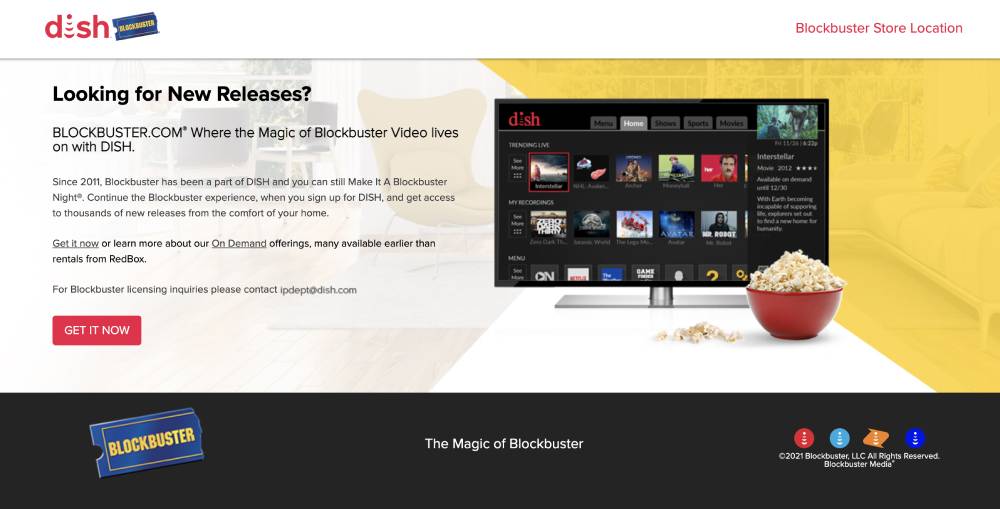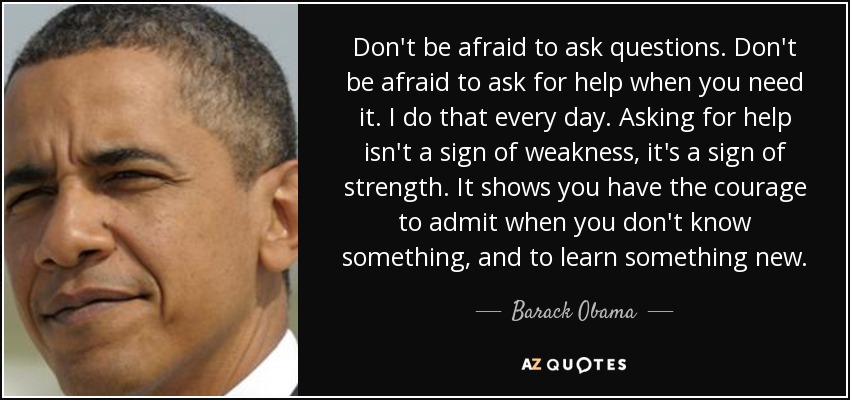In this article, we discuss the paradox of leadership and why asking for help may actually be the catalyst and be crucial for your business growth. We explain.
All too often we hear about the “overnight success” stories.
The eccentric genius who started a massive tech corporation out of his basement. The whip-smart marketing director who launched a million-dollar coaching business. An ecommerce business that went from launch to six figures in less than a year.
These stories are intoxicating and inspiring.
We think, “That could be me!”
But these stories are also misleading.
When we look at industry leaders like these, we tend to see their successes — not their failures.
We see the one time their ideas worked — not the dozens of ideas that failed.

But the reality is, success never happens overnight. Real success is born of failing – over, and over, and over again.
There is no such thing as an overnight success.
Success takes time. Sometimes a lot of time.
The paradox of leadership
When you imagine a top business leader in your industry, what characteristics come to mind?
Someone who is a type-A, knows everything, has it all together? A sharp dresser with a great taste in wine?
Maybe they are a bit of a perfectionist.
They’re driven; they’re committed; they don’t need help from anyone.
The true paradox of leadership is that those characteristics we see on the outside are not actually the characteristics that lead to success.
Great leaders might seem to have it all together — but in reality, they fail. They are willing to learn. And they know exactly when to ask for help.
From the outside, it might look like the top leaders in your industry have a golden touch — every project they have a hand in is a massive success.
From the outside looking in, it is easy to focus on their wins.
But even the best leaders experience failure — sometimes a lot of it.
True leadership is about learning how to fail well — and when to ask for help.
What is holding you back?
I talk with a lot of business owners about how to drive growth using content and strategies like retargeting, paid ads, and repurposing content to maximise branding.
Don’t get me wrong — those strategies are important. They help establish brands, educate your audience, and, most importantly, actually drive conversions.
But during these conversations, I notice a lot of business owners are being held back from reaching their full potential from something totally unrelated to content and marketing.
What is it that is holding them back?
It is a combination of three things that are all intertwined — fear of failure, ego, and blindspots.
Fear of failure
It is time to reframe how we think about failure.
Think about the last time you really, really tanked something. Like royally screwed up so bad you would have fired yourself.
Maybe you forgot to send a follow up to a critical client, or left a Christmas paid ad running into March. Maybe you maxed out your credit cards and ended up trying to rebuild your credit score.
How did it make you feel?
Ashamed, embarrassed? Did you get that internal cringe feeling that makes you wish you could crawl into a hole?
I’ve been there.
We’ve all been there. And, I’d argue great leaders have been there more than anyone else.
Take, for example, James Dyson, the creator of the Dyson vacuum. You might have heard of it — he’s made a few sales in the last few years.
His first successful Dyson vacuum was the 5,127th version.
Before he found a model that worked, he failed a spectacular 5,126 times.
I don’t know that many business leaders would have tried again after more than 5,000 failures. I can honestly say I would have given up.
Yet, in 2018, Dyson had an annual revenue of 4.4 billion dollars. Not too bad for a dude with more than 5,000 failures, right?
In an Entrepreneur interview, Dyson shared how valuable failure can be:
“Failure is interesting — it’s part of making progress. You never learn from success, but you do learn from failure. (When I created the Dual Cyclone vacuum), I started out with a simple idea, and by the end, it got more audacious and interesting. I got to a place I never could have imagined because I learned what worked and didn’t work.”
Rather than looking at each business failure as a personal failure, look at failure as data.
Now you know what didn’t work — what did you learn? How can you apply that to the next project and the one after that?
Failure isn’t a judgment of your worth as a person; it is a step on the path to success.
Ego
Any high achieving entrepreneur has some level of ego. It comes with the territory.
When it serves you well, that ego can give you the confidence to take daring risks or innovative strategies.
I’d argue that having a bit of ego is critical to success. It gives you the confidence to look at the world just a little bit differently.
The problem with ego is it can lead to pride — and pride can prevent you from realising when you are in over your head.
Ego can make you focus so hard on being right that you overlook areas where you could improve or where someone else’s experience could help you reach your goal.
Keep your ego in check by listening to what other people have to offer, rather than assuming you have all the answers.
Don’t let your self-worth get wrapped up in being right. Be willing to try new strategies, let other people try out their ideas, and don’t assume you have all the answers.
Blindspots
By their very nature, you don’t know your blindspots are there.
They’re your unknown unknowns — the things you don’t realise you don’t know.
You could be doing something completely counterintuitive to the growth of your business without even realising it.
Imagine not knowing that you’re making the wrong decisions for your business.
Is there anything more dangerous?
Blindspots, those things we don’t know we don’t know, are closely related to ego — when you let your ego get out of control, you tend to have a lot of blindspots.
And that can be deadly for your business.
Think about Blockbuster during the rise of Netflix.
As Netflix began to deliver rental movies directly to people’s homes, Blockbuster assumed they were safe. After all, they tended to be cheaper and had been around for decades.
Besides, with Netflix, you had to wait several days to get your movie.
Who in the world would do that?
Blockbuster had a blindspot — they didn’t realise that people would choose to save time (the time to drive to their local Blockbuster, that is) rather than have greater control over when they could watch their movie.
That blindspot, like a lot of blindspots, led to Blockbuster’s demise.
Today, Blockbuster is little more than a Dish.com landing page:

Image Source: Dish.com
The top business leaders — the ones making the most progress and growing quickly — are the ones that know how to ask for help. They are the ones that are the students and taking notes.
They put their ego to the side and focus on what to do to be a better leader.
So what do you do? What do business leaders that want to grow quickly, that want to support their clients at a higher level, that want to support their community at a higher level do to overcome these challenges?
They have to be willing to fail — and learn.
If you want to be a life-long leader, learn to fail well
Being a leader is a process, and one that requires not just learning how to fail, but how to fail well.
One of my favourite quotes about failure is from Thomas J. Watson, the second President of IBM:
“The fastest way to succeed is to double your failure rate.”
If that sounds scary, you are not alone.
Most people are scared to fail. It feels like a personal failure.
Instead of focusing on the act of failure, focus on learning to fail well.
What does it mean to learn to fail well?
Failing well means acknowledging that failure happens to everyone and using it as an opportunity to build the skills you need for success or ask for help.
Here are a few lessons failure can teach:
Focus on your strengths
Most business leaders are only good at a handful of things. They might be an excellent manager, but not a good developer — or they might be a skilled developer who struggles when it comes to personal interactions.
The point is — no one is good at everything.
If you want to be a leader in your industry, that doesn’t mean you need to dive in and learn everything about using paid ads to promote your content.
It means you need to know enough to understand how the concept works — and the business acumen to find the right person for the job.
Don’t try to be the best at everything — instead, stay focused on your strengths.
The importance of learning
Digital marketing is ever-changing. No matter if you have a B2B eCommerce business or a plain website. Platforms like Facebook, Google, and Twitter are constantly updating their algorithms and terms of service.
The shopping habits of millennials are not the same as the previous generations, nor will they be the same as the future ones.
A strategy that rocked last month might fall flat this month.
Yet many choose to ignore the changes in digital marketing — and in business in general.
Don’t stick to the way things have always been done.
If you are not learning about new technologies like AI, automation, and smart technologies, your business is going to get left in the dust. You can use free learning resources websites such as StuDocu to perfect your skills or learn new ones.
The best leaders are lifelong learners who are willing to take what they learn from failure and figure out how that can make them better at what they do.
Platforms like Masterclass offer an amazing opportunity to learn from the experience of industry leaders. Use these resources to learn from the mistakes of those people you admire or aspire to be like.
Learn how to ask for help
Asking for help doesn’t come naturally to many of us — especially business leaders.
It is hard — asking for help feels a bit like admitting defeat.

Image Source: AZ Quotes
It doesn’t matter how many great ideas you get if you’re not able to put those ideas into practice. And in many cases, the only way to get innovative ideas off the ground is with a bit of help.
This is not the time to let the ego get in front and say, “I’m good. I got it all figured out. We have no problem. We’re doing fine.”
Here are two strategies for asking for help;
- Look for a supportive community of growth-minded business owners that you can connect with who are willing to collaborate and share information. You will feel more equal to these people, which makes it easier to ask for help.
- Pay attention to the way you ask. The reason many leaders are afraid to ask for help is that they think it makes them look weak. Rather than saying “I have no clue how to fix this.” say, “I have a few ideas, but could use a fresh perspective.”
Remember that asking for help doesn’t show weaknesses — it shows you are smart enough to realise you don’t know everything. It means you are willing to face things head-on, even if they are uncomfortable.
In Summary
Right now, businesses are facing a number of challenges. Search volume is down for a lot of industries, including law, hotels, restaurants, and theme parks. In many states, retail and restaurants are closed, and maybe for the foreseeable future.
Clients are tightening the budgets as they look towards an uncertain economic future.
While these challenges might be overwhelming — they are temporary. This challenge, like all others, will pass.
Part of being a resourceful leader is being able to reach out to the right people who know how to do something.
For example, you don’t need to know how to track every PPC metric to be a good business owner. What you do need to do is know how to ask for help from your colleagues, a mentor, or another company to succeed.
About the Author
Bethany Santos is a former HR Officer who later found her specialty in digital marketing. With a keen interest in content optimisation and market behaviour, she’s become a walking database for industry news.



